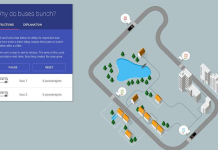School counseling provides a safe place in school for children and young people to discuss and address their worries and concerns. School counselors work with students to develop academic and social skills that can lead to better grades, improved friendships and better behavior.
As part of a school support team, school counselors provide a counseling program that promotes students’ wellbeing. They facilitate access and equity for all and connect the program to the school’s academic mission and improvement plan. Professionals in this field must deeply comprehend behavior, social culture and career development.
School counselors work with students in three domains: academic, career, and social and emotional development. These domains are interlinked, each affecting the other and all important in achieving success. Improving student commitment and performance can contribute to a school’s educational outcomes. Promoting mindsets and behaviors that enhance learning help prepare students for life after school. Walsh University offers an online Certificate in School Counseling. The course will enable you to influence students’ lives through learned counseling methods.
Real-life experience
When he was young, Angel B. Pèrez moved from Puerto Rico to New York City in America. In his article ‘America Needs More School Counselors’, he writes about his experience at an inner-city school with rising drug use and gun violence. The school counselor asked him if he had thought of going to college, which set him on a journey that he had not considered before. The school counselor supported him when he made college and financial applications. His parents did not speak much English, so this help was invaluable. Without the school counselor, he does not believe that he would have gone to college. Pèrez champions equity in American education and calls for more counselors in schools.
Career development
School counselors help to prepare students for life after school. They support them in identifying and working on their career goals, giving them direction when they leave school.
School counselors recognize that every student has skillsets, interests and values that can lead to future opportunities. Leaving school can challenge young people as they take on new roles. All students should be supported to develop the knowledge and skills they need to do well in their chosen fields. Working with students, families, school staff and the community, they ensure that all students understand the options available and have an appropriate career pathway to follow. This could be an apprenticeship, college, university, or going straight into the workplace.
Career education starts early, with the world of work being introduced to preschool children, and continues until students leave school. Some learning is experiential, and students can learn about different careers and their skillset by doing work experience, projects in the community, visiting careers fairs, etc. School counselors work with teachers to ensure that career development is an ongoing part of the curriculum.
School counseling provides opportunities for students to learn work-related skills, have a positive attitude to learning, and be willing to work. Activities can include:
- Learning about educational and occupational options.
- Increasing self-awareness relating to ambitions and abilities.
- Developing the capacity to set goals and make career decisions.
Students can become motivated by having a sense of purpose and achieving short-term and long-term goals. Career development can have a positive influence on academic performance. It can also help with school retention rates.
There are benefits to working online in the classroom, and online activities can play a part in career education. School counselors can use the data generated to recognize which students are unsure about what pathway to take after school.
Social and emotional development
School counselors work with students with mental health and family and social problems. They must understand the social and cultural mores that affect behavior and relationships in the school environment. Counselors are trained to recognize issues that may negatively impact a student, such as bullying, academic struggles and friendship difficulties. They help students to overcome problems by running support programs to build confidence, positivity and self-worth.
Counseling in schools can include developing counseling programs, individual and small-group counseling, and improving students’ social and emotional wellbeing. School counselors help students manage emotions, develop interpersonal skills, and promote mindsets and behaviors that enhance learning.
School performance can be compromised when students adopt high-risk behaviors such as violence, sex, substance abuse and attempted suicide. School counselors can recognize these behaviors, put support in place, and refer students to specialist services, including crisis interventions.
Some school counselors run support groups for students with the same issues, such as LGBTQ+ students, social anxiety, dealing with grief, mindfulness, or study skills.
School counselors must understand the nature of human behavior specific to child and adolescent development. They must know and use counseling theories to inform and underpin their practice. Statistics and research methods can be used to implement an appropriate social and emotional development program.
Academic development
School counselors support student academic success in many ways. They help students to have the mindset and behavior to advance their academic performance. School counseling programs use data to develop educational goals that reflect students’ ability and interests and to promote equality of opportunity. They share their knowledge with other school staff and work to create a school culture of striving to reach one’s potential. They emphasize the relationships between student, family, school and community in supporting academic achievement.
They assess school programs to identify problem areas and work with other stakeholders to address these and enable students to succeed.
School counselors contribute to educational and academic outcomes by improving student commitment and performance. They use data to understand student needs and run counseling programs to ensure that all students develop academic goals that reflect their abilities and interests.
School counselors work with other staff to create an environment that encourages academic success and reaching one’s potential. They work to remove barriers to success and give equality of opportunity to all students.










vurcazkircazpatliycaz.JyzkIb6Ho3i1
daktilogibigibi.7tCh8PhWRDtI
daxktilogibigibi.25uH82grE3p3
xyandanxvurulmus.74SalkdIftoT
xbunedirloooo.UlGejo0endSr
xyandanxvurulmus.B936iafUesqd
xyandanxvurulmus.mRTAFVWrQKrb
polyembryonies xyandanxvurulmus.KNnmoQDtz7O1
empolders xyandanxvurulmus.pdvux7MZkCYR
eski rahatiniz olmayacak vurgunyedim.3mZMLILwOU1F
bahis porno yaralandinmieycan.lw0c7Fbg0yBu
Watch Casino porn videos for free, here on Pornhub.com. Discover the growing collection of high quality Most Relevant XXX movies and clips
porno citixx.bhJjZvBk2hiS
house porn hyuqgzhqt.nhKIHpJW638m
pornhub bahis siteleri ewrjghsdfaa.dlf0YXMrC59W
porno izle wrtgdfgdfgdqq.NcDHdHsuhHVS
bahis siteleri child porn wrtgdfgdfgdqq.goQy7LIV7MLR
eski rahatiniz olmayacak wrtgdfgdfgdqq.AZ4eXFc23wyk
sildenafil 100 mg
anal siteleri pompadirha.hCVXbBgK7TLh
bahis siteleri sikis asillartaklitler.iCTLH2l4g7fN
craft porn hephupx.SjgMeUBjmTLg
viagra hepxhupx.ijZP8AqWwQLC
bahis siteleri incest category juljulfbi.95K0dIgf7hdt
seksi siteler bjluajszz.zUyscccujXw4
fuck bxjluajsxzz.sQ5wePHrLXXF
amciik siteleri 0qbxjluaxcxjsxzz.SvfhIGUnkgP2
great article
“This blog is a breath of fresh air in the cluttered space of online information. Truly thankful for its reliability!”
lisinopril medication
flagyl neurotoxicity
zoloft and benadryl
is furosemide a brand name or generic
what is gabapentin for dogs
zithromax z-pak no prescription
glucophage doziranje
lasix kidney failure
cephalexin 500
amoxicillin and clavulanate side effects in adults
escitalopram and sertraline combination
gabapentin and flexeril
ciprofloxacin class
bactrim gram negative coverage
cephalexin vs bactrim
Damar sözler, güzel sözler, aşk sözleri, en güzel sözler, söz sitesi
is cephalexin good for sinus infection
amoxicillin clavulanate dosage
bactrim
This article is insightful and well-written, providing valuable information on the topic.
I appreciate the depth of research evident in this informative blog post.
Your point of view caught my eye and was very interesting. Thanks. I have a question for you.
escitalopram fatigue
does neurontin help with anxiety
KahveOyun.com – Mobil ve bilgisayar üzerinden okey odalarında oynayarak zaman geçireceğiniz ve okey oynarken sohbet edebilme fırsatını ücretsiz sunmaktadır.
ddavp with von willebrand’s disease
depakote drug interactions
cozaar merck
citalopram interactions with marijuanas
sex video download full hd gghkyogg.09oHvOI4ccB
pornky. ggjennifegg.wr0BVXIxKdo
www xxx hd 4k ggjinnysflogg.0hC30qgbPpm
Kahve amina Okey ayagimi Kahvesokucamokey
depakote interactions
ddavp enuresis dosing
cozaar pictures
withdrawal from citalopram
Refreshing to see a blog post that respects readers’ time while delivering valuable insights.
I couldn’t agree more with the points raised here. It’s a breath of fresh air in today’s digital landscape.
Refreshing to see a blog post that respects readers’ time while delivering valuable insights.
diclofenac na 1% top gel
diltiazem cream
rash from augmentin
Absolutely loved this! Short, sweet, and straight to the point.
This article truly resonated with me! It’s refreshing to see such insightful content in a sea of noise.
simultaneous liquid chromatographic determination of ezetimibe and simvastatin in pharmaceutical products
I appreciate how well-researched and informative this post is. It’s evident that a lot of effort went into writing it.
I just like the helpful info you supply on your articles.
I will bookmark your blog and take a look at once
more right here regularly. I’m moderately sure I
will learn a lot of new stuff right right here! Best of luck for the next!
expired flexeril
contrave 8-90 mg
long term side effects of flomax
effexor xr reviews
how much does aripiprazole cost
aspirin a day
how long does it take for amitriptyline to work for sleep
I love how practical the tips in this post are. Definitely going to implement them
allopurinol picture
baclofen for alcohol use disorder
Great content! It’s quite informative and engaging. I’m looking forward to more content from you.
augmentin dose for sinus infection
bupropion nausea
Thank you for sharing your personal experience. It’s inspiring to see how you overcame such obstacles, and it gives me hope for my own journey
celebrex doses
fashionflag free hd pourn fashionflag.VVKhJw7o4Qd
This article really resonated with me. I’ve been struggling with the same issue for a while now, and it’s refreshing to see someone else articulate it so well
goodhere BDSM porn vurucutewet.XV2PNGv1MqA
ladyandtherose Granny porn backlinkseox.hHhB4VgpCpu
ashwagandha beneficios
jenniferroy フェラチオポルノ japanesexxporns.oA3YHl0REQK
how long for celexa to work
how long does buspar stay in your system
landuse Pregnant porn lancdcuse.eplCdQ4TCM2
falbobrospizzamadison Big Tits porn jkkıjxxx.FpzYSTmnWvA
celecoxib generico precio
कृष्ण श्वेत अश्लील qqyyooppxx.u1pWlggnyqh
मजेदार सेक्स पोर्न के बा hjkvbasdfzxzz.svcIgdU6xii
Thank you for sharing your personal experience. It’s inspiring to see how you overcame such obstacles, and it gives me hope for my own journey
मजेदार सेक्स पोर्न txechdyzxca.lwOZxdwpbba
I love how this post breaks down such a complex topic into easily digestible pieces. It’s so helpful for someone like me who’s just getting started in this field
मजेदार सेक्स पोर्न hkyonet.OoosNXhrbQD
Thank you for sharing your personal experience. It’s inspiring to see how you overcame such obstacles, and it gives me hope for my own journey
pov ਪੋਰਨ madisonivysex.2Z4fheoHJiG
does semaglutide cause hair loss
acarbose classification
ladesbet ਗਰੁੱਪ ਸੈਕਸ ਬਾਰੇ ladesinemi.Vjrsy5TZx5L
ladesbet 面白いポルノ ladestinemi.6Ga85THurwO
effexor and abilify
actos heteroaplicativos
robaxin-750
protonix ppi
repaglinide м°Ѕ
remeron and effexor
how long does robaxin stay in your urine
spironolactone 25 mg 852
sitagliptin renal dosing
synthroid oxycodone
ivermectin 1%
what cold medicine can i take with venlafaxine
how often can i take tizanidine 4mg
what is voltaren used for treatment
tamsulosin 0.4mg picture